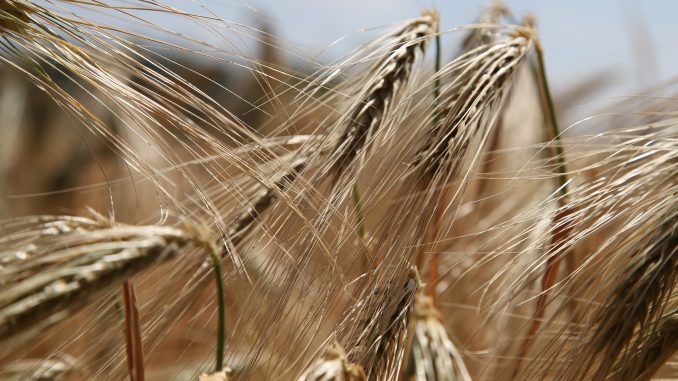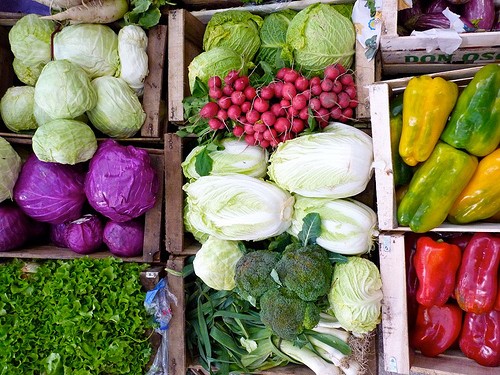

Image Source: Pixabay
Nowadays, “gluten-free” seems to be the new buzzword in healthy eating. From cookies to pasta and pretty much everything in between, consumers are looking for those two magic little words.
But is the gluten embargo really all it’s cracked up to be? Well, the answer isn’t quite so simple. The fact is, the majority of the population, in general, doesn’t have a problem with gluten. For this group, the widely celebrated health benefits of going gluten-free, from weight loss to improved stamina to better digestion, often turn out to be more fiction than fact.
However, there is a pretty decent portion of the population for whom going gluten-free is a meaningful help. And for still others, it does not just help—it’s a necessity. If you are one of the nearly 20 million Americans with some form of gluten sensitivity, eliminating the protein from your diet can be life-changing.
The key, however, is to determine not just whether you are truly gluten intolerant, but why. Gluten intolerance and Celiac Disease are the two principal culprits behind gluten sensitivity, but they are very different diagnoses and, as such, they need to be managed differently. This article will help you distinguish between gluten intolerance and Celiac Disease and will explore the best strategies for managing your symptoms.
Understanding the Differences
Gluten is a protein found in a wide array of foods, principally wheat, and that makes gluten a staple of the traditional American diet. People who have a gluten-intolerance generally either lack the enzyme needed to digest the protein properly or they are allergic to the protein. Either way, the result is generally the same: pain, bloating, and digestive distress. If the reaction is allergic, you may also experience a rash, itching, or other symptoms associated with allergy.
Celiac Disease, however, is a wholly different beast. Celiac Disease is an autoimmune disorder that’s associated with a range of symptoms. These symptoms can vary widely from person to person, and can even evolve over time. A child with Celiac Disease, for example, may have very different symptoms than an adult with the disorder.
In fact, though GI symptoms may be classically associated with Celiac Disease, some people with the disease have few or no digestive symptoms! But because Celiac Disease is an autoimmune disorder, you should look for systemic signs to help you differentiate between Celiac Disease and gluten allergies or intolerance.
Celiac Disease can affect every bodily system, producing whole-body symptoms. Celiac Disease can affect the skin, leading to eczema and acne; the musculoskeletal system, leading to joint pain and osteoporosis, and even the reproductive system, leading to infertility and miscarriage. It has been linked to everything from anemia to neuropathy to depression and anorexia.
Managing Your Disorder
Whether you have Celiac Disease or are simply gluten intolerant, one of the first steps toward feeling better is eliminating gluten from your diet. That’s far easier said than done, however. Even if you have received a Celiac Disease diagnosis, you should never attempt to go gluten-free without the guidance and supervision of your healthcare provider. As you and your doctor work together to develop a new health and nutrition plan that works for you, it’s important to look for healthy alternatives that will be kinder both to your digestive tract and your immune system.
Oats and oat milk, for example, can be a tasty and nutritious alternative to other gluten-rich staples. However, the risk of gluten cross-contamination during the manufacturing process is high, so always make sure that your oats and oat milk are certified gluten-free.
Likewise, if you are allergic to gluten, incorporating CBD oil into your daily diet can help tamp down the body’s overzealous allergic response. There are even studies underway to examine the potential benefits of CBD oil in managing Celiac Disease, such as by reducing inflammation in the GI tract!
The thing to remember is that going gluten-free doesn’t mean you have to give up the foods you love. Look for quick and easy recipes designed to be gluten-free, or swap out troublesome ingredients for GI-friendly substitutes.
Make a Lifestyle Change
Whether you are intolerant to gluten or you are waging the battle against Celiac, it takes more than changing your diet to get the quality of life you deserve. Good health means tending to the mind and spirit as well as the body. So as you make the transition to a gluten-free lifestyle, consider seeking out the support of an integrative healthcare specialist.
With integrative health, you’ll learn to cultivate the essential connection between mind and body. You’ll explore how to nourish your body good food, replenishing sleep, and healthy physical activity. At the same time, you’ll also discover the best ways to feed your mind and spirit, from practicing meditation to pursuing your passions to simply taking a little time for self-care.
The Takeaway
Learning you have a food intolerance or an autoimmune disorder isn’t easy, nor is learning how to manage your condition. But, whether by choice or necessity, going gluten-free can be the wakeup call so many of us need in today’s chaotic world. It can be a reminder that living a long and healthy life doesn’t happen by chance. It takes effort and commitment. And that means putting ourselves, at last, on our own priorities list!



